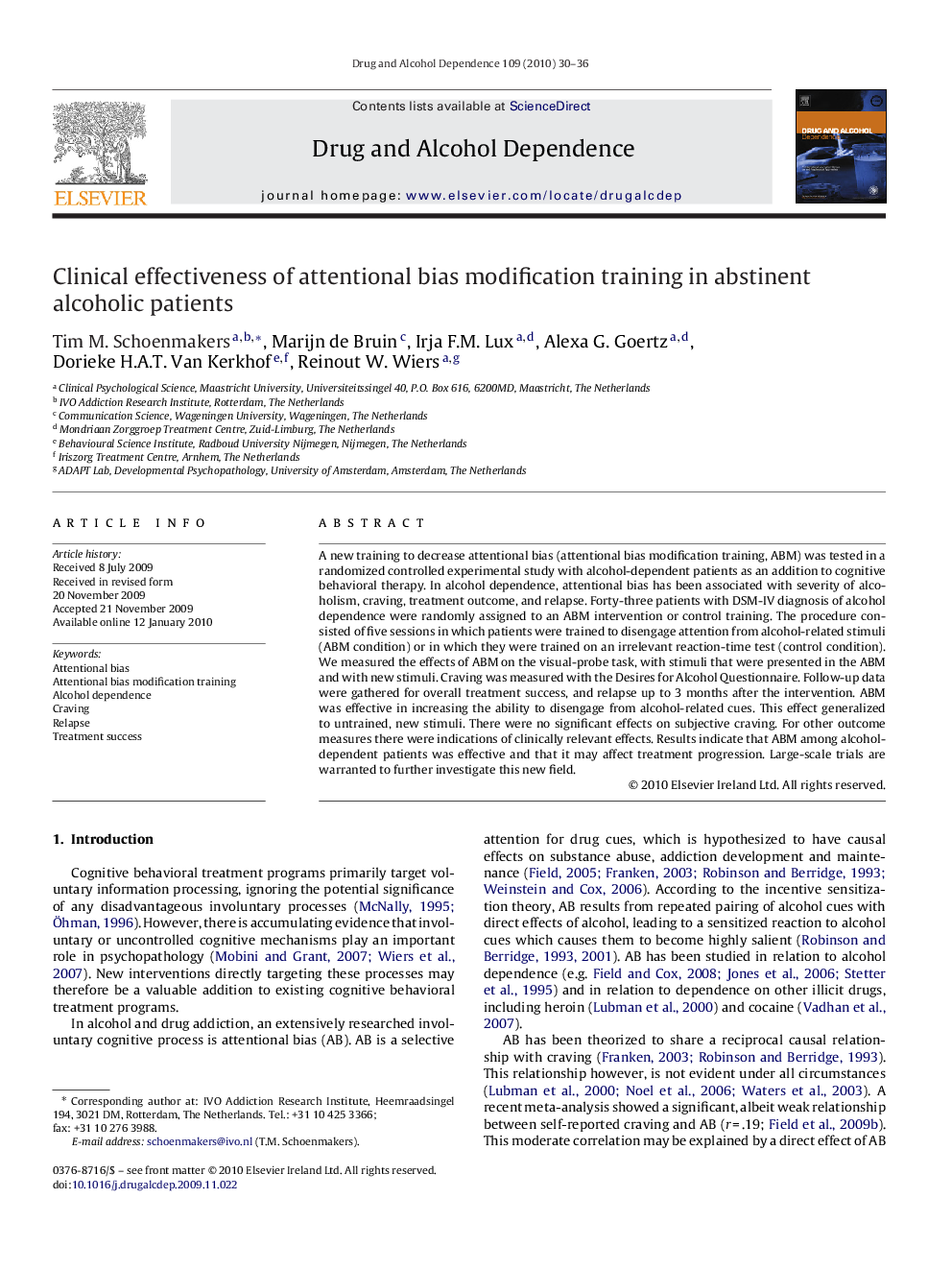| کد مقاله | کد نشریه | سال انتشار | مقاله انگلیسی | نسخه تمام متن |
|---|---|---|---|---|
| 1070756 | 1486182 | 2010 | 7 صفحه PDF | دانلود رایگان |

A new training to decrease attentional bias (attentional bias modification training, ABM) was tested in a randomized controlled experimental study with alcohol-dependent patients as an addition to cognitive behavioral therapy. In alcohol dependence, attentional bias has been associated with severity of alcoholism, craving, treatment outcome, and relapse. Forty-three patients with DSM-IV diagnosis of alcohol dependence were randomly assigned to an ABM intervention or control training. The procedure consisted of five sessions in which patients were trained to disengage attention from alcohol-related stimuli (ABM condition) or in which they were trained on an irrelevant reaction-time test (control condition). We measured the effects of ABM on the visual-probe task, with stimuli that were presented in the ABM and with new stimuli. Craving was measured with the Desires for Alcohol Questionnaire. Follow-up data were gathered for overall treatment success, and relapse up to 3 months after the intervention. ABM was effective in increasing the ability to disengage from alcohol-related cues. This effect generalized to untrained, new stimuli. There were no significant effects on subjective craving. For other outcome measures there were indications of clinically relevant effects. Results indicate that ABM among alcohol-dependent patients was effective and that it may affect treatment progression. Large-scale trials are warranted to further investigate this new field.
Journal: Drug and Alcohol Dependence - Volume 109, Issues 1–3, 1 June 2010, Pages 30–36